Displaying items by tag: Sea Cadet Corps
Cadets Celebrate 150 Years with Royal Visit
The Cadet Forces in Northern Ireland celebrated their 150th anniversary this year. At a reception to mark the occasion which was held at Hillsborough Castle, Queen Elizabeth II accompanied by the Duke of Edinburgh met the various cadets forces to include the Sea Cadets Corps.
The Sea Cadet Corps are part of the Northern voluntary organisation whose purpose is to develop, in youth, the attributes of leadership,active citizenship and physical fitness within a challenging and fun environment.
In total the organisation has around 3,600 cadets and 500 Cadet Force adult volunteers make up the four cadet forces, including The Sea Cadet Corps, The Army Cadet Force, The Air Training Corps and the Combined Cadet Force whose 1,200 cadets.
The cadets are located at the Bangor Grammar School, CampbellCollege, Foyle and Londonderry College, Royal Belfast Academical Institution and The Royal School Armagh.
.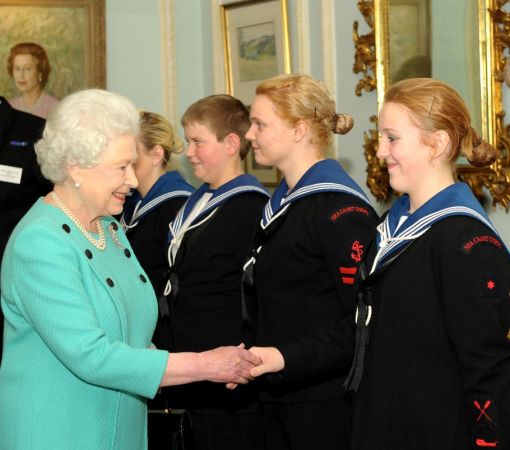
Coleraine Cadet Eimilie Sherman shakes hands with Her Majesty.
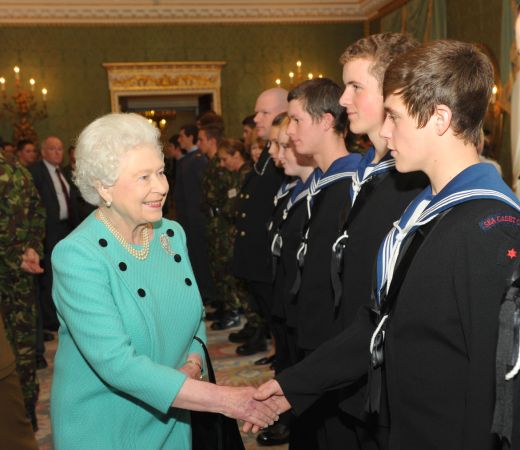
Nick Johnston from Antrim enjoys a chat with Her Majesty.
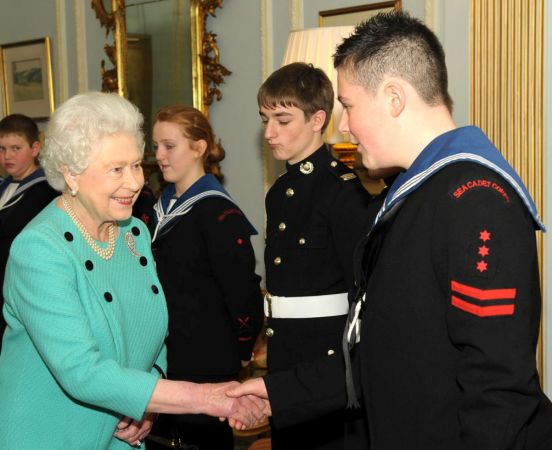
A moment to treasure for Aaron Brogan
.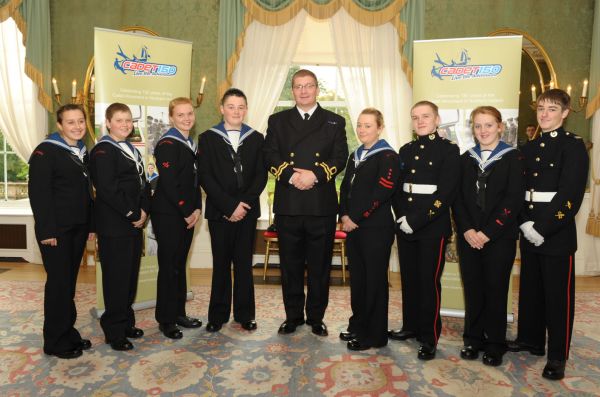
Preparing for the visit are, from left, Rebecca Abram from Larne; Stephen Baird from Ballymena; Andrea Hanna from North Belfast; Luke Douglas from County Down; Lieutenant Robert McLennan from Newtownabbey; Eimilie Sherman from Coleraine; Aaron Brogan from Bushmills; Emma Hobbs from Larne and Ronan Sherman from Coleraine.
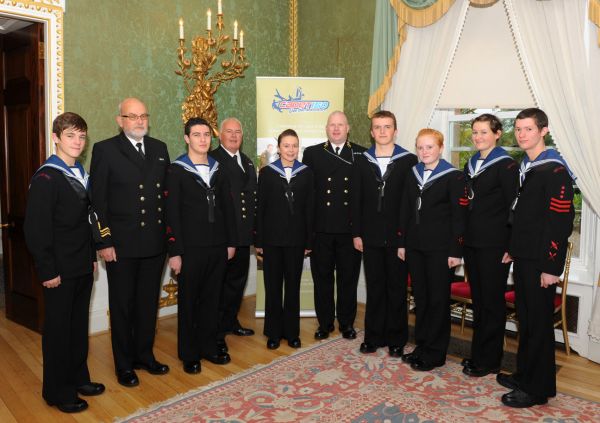
Looking suitably 'ship shape' are, from left, Nick Johnston from Antrim; Lieutenant Commander Ross Mulholland from Glenavy; Johnny McAllister from North Belfast; Lieutenant Commander Bill Keery from Bangor; Alexandra McQuisten from North Belfast; John Kinner from Bangor; Lewis Tipping from North Belfast; Nikita McCoubrey from North Belfast and twins Louise and Thomas Potter from Portaferry.
























































